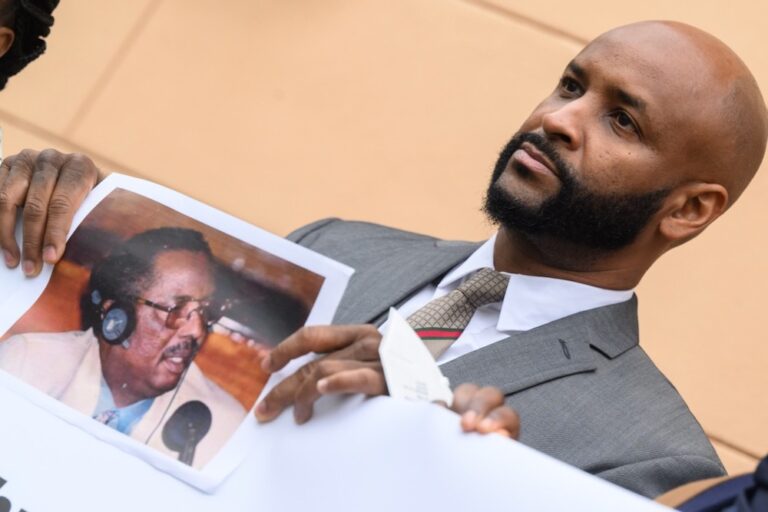Daily Observer correspondent Sidiq Asemota believes he was arrested in connection with a story about the sentencing of two Gambian nationals for white collar crimes.
UPDATE: Newspaper reporter released (MFWA, 14 July 2012)
(IPI/IFEX) – VIENNA, July 11, 2012 – The distressing string of journalist arrests continues in Gambia, as Sidiq Asemota, senior legal correspondent for the Daily Observer, was jailed on Tuesday on unknown charges.
Asemota was arrested while covering court affairs for the paper. According to the Daily Observer‘s own reports, Asemota believes the jailing is in connection to a story about the sentencing of two Gambian nationals for white collar crimes.
Government officials came to the Daily Observer‘s offices Tuesday looking for Asemota, but security officials failed to cooperate. They found Asemota at High Court in Banjul, the Gambian capital. They took him into custody, where he was able to make a cell phone call to the paper’s offices and inform them he was being brought to Mile II, a notorious detention center.
During the conversation with Managing Director Pa Malick Faye, Asemota explained that the charges involved a seemingly innocuous June 9 story titled “Two sentenced for forgery”. Asemota was particularly concerned that officials came directly to him without issuing any complaints or notifying the paper.
“I believe if the story has a problem, they should call us to lodge a complaint and we take appropriate steps to correct the error. But sending the journalist to prison without even notifying the Daily Observer, which is the publisher of the said article, is really shocking,” according to a quote from the Daily Observer.
Asemota is the third journalist in Gambia to be arrested since June 20.
Late last month, Abdulhamid Adiamoh, the managing editor of Today, was fined and threatened with incarceration for a story critical of a court case involving a university lecturer. Despite complying with the court’s request for an apology, Adiamoh was denied bail and detained for more than a week, longer than the 72-hour limit allowed by law, and not informed of a contempt of court charge until he was received by a judge. This isn’t Adiamoh’s first brush with the Gambian law. In 2009, he was arrested and fined for publishing a false story on the reshuffling of government, and in 2008, he was charged with sedition.
Also in late June, Lamin Njie, deputy editor of The Daily News, was arrested for publishing unauthorized information, when he wrote a story on economic crimes involving ex-officials of the Gambian Revenue Authority.
“The recent arrests of Gambian journalists are an outrage. We call on President Yahya Jammeh and his government to stop treating journalists as criminals when they are simply doing their jobs,” said International Press Institute (IPI) Deputy Director Anthony Mills. “The Gambia is known for its failure to uphold basic democratic principles, including press freedom, and that reputation is only getting worse. We call on The Gambia’s donors and investors to hold the government to account for its mistreatment of journalists, bearing in mind that one of the media’s roles is to help combat corruption and abuse of office.”
Of particular concern, all three journalists were sent to Mile II, a major Gambian jail known for the detention and torture of those perceived to be enemies of the state. Radio Netherlands Worldwide detailed the conditions and treatment in the facility, describing the torture of a former member of parliament charged with treason for voting in opposition of Jammeh’s plans.
One detainee cited in the report identified the conditions as “hell-ish”, stating, “It’s not meant for human beings.”
One Gambian journalist who spoke with the IPI explained his treatment in jail, suggesting he had contracted tuberculosis while incarcerated, making it particularly difficult to participate in his own trial.
He discussed his mistrust of the Gambian judicial system, concluding, “It’s a circus here.”


